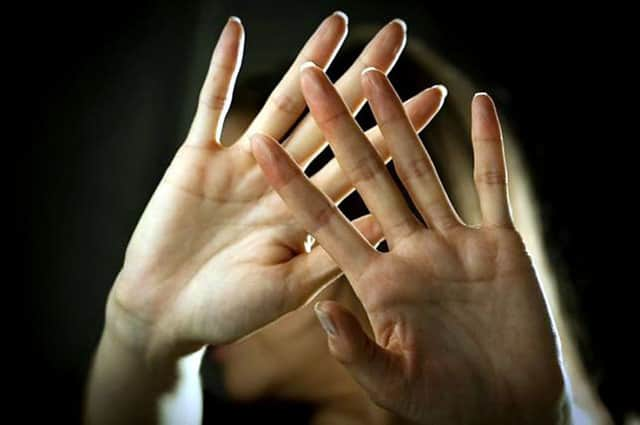Victims: Psychological abuse '˜not criminal'


The Scottish Government is considering new legislation to introduce a specific offence of domestic abuse to help increase prosecution rates.
The new offence is likely to include behaviour considered “psychological harm” such as acts of coercion and the deprivation of liberty.
Advertisement
Hide AdAdvertisement
Hide AdBut despite appetite for the new offence among campaigners and prosecutors, figures from the Scottish Crime and Justice Survey, published this week, show just 17 per cent of those who experienced psychological abuse last year considered themselves the victim of a crime.
According to the survey, 17 per cent of women and 8 per cent of men have experienced psychological abuse from a partner. While half of women thought physical abuse amounted to a crime, the figure fell to 25 per cent for psychological abuse. The corresponding figure for men was 5 per cent.
The draft offence seeks to criminalise behaviour which could isolate a person from friends or relatives or make them feel “frightened, humiliated or degraded”.
Lily Greenan, a former chief executive of Scottish Women’s Aid, said he hoped the legislation would bring about a “sea change” in the prosecution of domestic abuse.
But she said there was still work to do in educating the general public about what constitutes abuse.
“When women come forward, they think [psychological abuse] isn’t a crime, but that’s the stuff they talk about,” she said.
“They talk about the violence, but also hugely about the extent to which their lives were controlled.
“The daily wearing down of someone’s ability to act for themselves is what this offence is trying to get to.”
Advertisement
Hide AdAdvertisement
Hide AdCalls for a new offence grew in part from the reaction to the case of former MSP Bill Walker, who was jailed in 2013 after being convicted of a series of domestic abuse offences.
Walker was found guilty of attacking three former wives and a step-daughter between 1967 and 1995.
The prosecution described Walker’s behaviour as “violent, domineering, controlling and relentless” over decades.
Ms Greenan added: “The point of this new offence is to take account of patterns of behaviour … We’re not talking about a one-off incident.”
A spokeswoman for the Scottish Government said: “Creating a specific offence of domestic abuse will give the police and the courts the powers they need to hold perpetrators to account and improve public safety.”